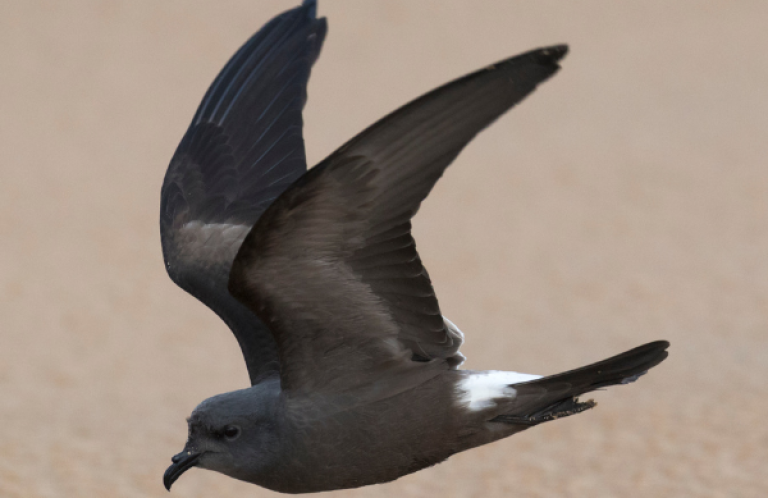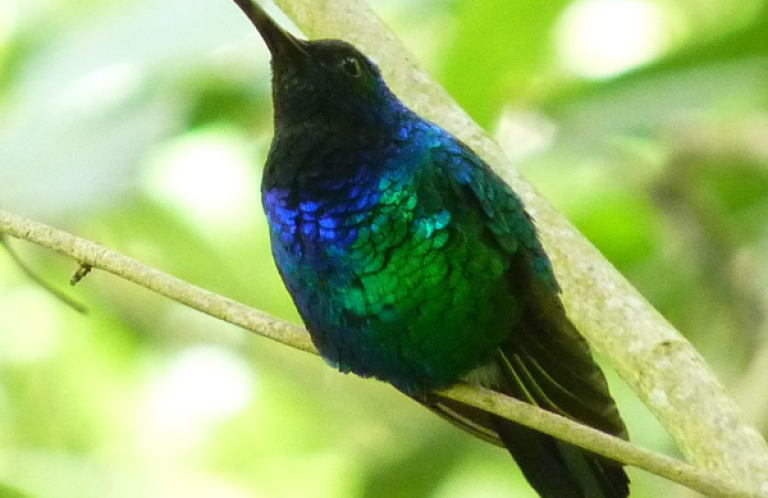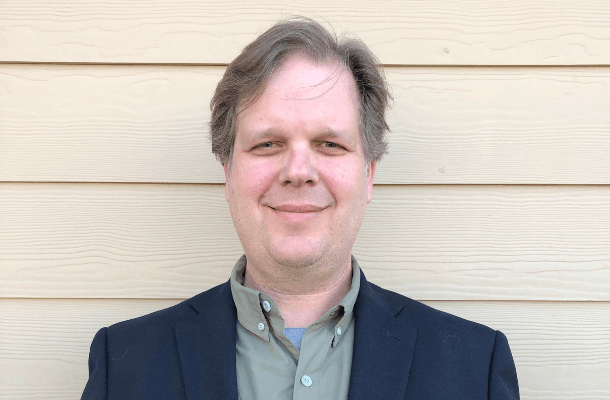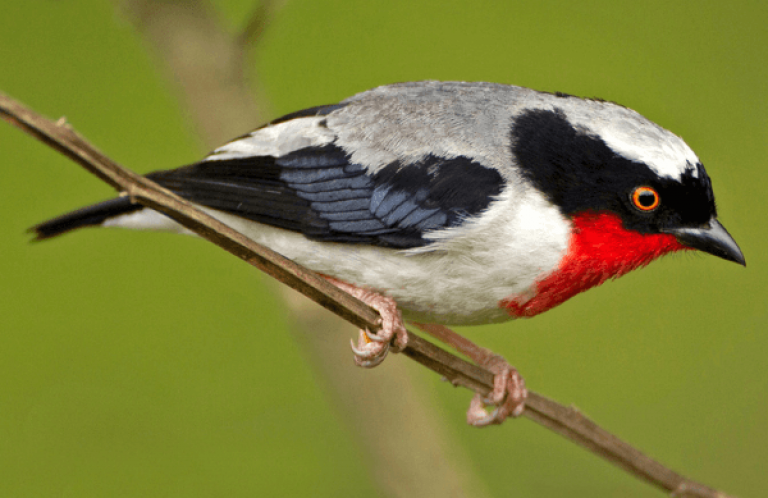ABC Delivers Big Wins for Birds at the State Level
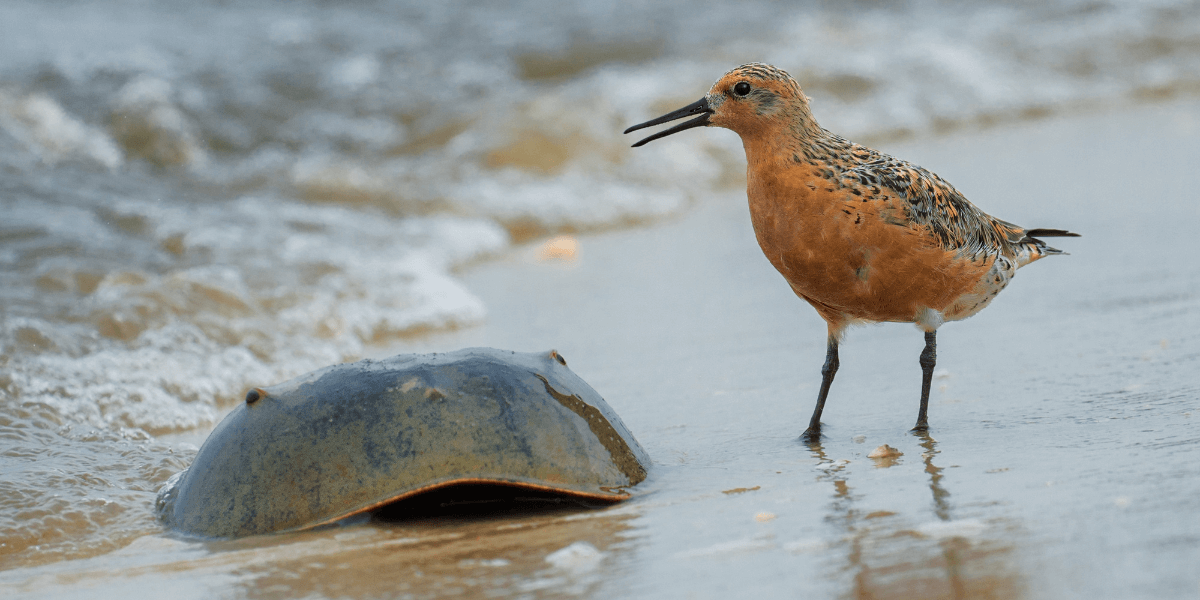
While the U.S. federal government fuels and funds bird conservation work, American Bird Conservancy's advocacy goes beyond the halls of Congress. We take on strategic issues in state legislatures, where we find opportunities to advance bird and habitat conservation in meaningful, powerful ways. This is especially important at a time when federal policies move slowly, or when Congress finds itself at loggerheads (unfortunately, not the shrike kind).
At the state level, we can tackle challenges birds are facing on a finer scale, concentrating on localized solutions to conserve key habitats, support the unique needs of species with smaller ranges, and advance innovative policies that contribute to a mosaic of bird-friendly policies across the country. Here are some recent wins for birds worth celebrating.
Banning Harmful Pesticides in Vermont and Connecticut
Pesticides that rely on harsh chemicals can have cascading negative effects on birds, and some of the most widely used chemicals for growing plants — neonicotinoids, or “neonics” — are particularly harmful. Coated on seeds in agriculture to deter crop pests, and sprayed on lawns and golf courses, these highly water-soluble chemicals kill the insects that birds eat and leach into waterways. ABC has long advocated for tighter regulations on these and other dangerous pesticides.
In Vermont, as of July 1, these harmful neonicotinoids are now banned on all ornamental plants! Thanks to legislation championed by ABC and passed last year in the Green Mountain state, outdoor plants like shrubs, nursery flowers, and landscaped areas can no longer use neonics. This is a huge step, but it's not the last: By 2029, neonics will also be banned on soy, corn, and wheat seeds planted across the state.
ABC helped to rally supporters in Vermont and reach out to their representatives and senators, not once, but twice! The bill was initially vetoed by the governor, but ABC's supporters sprang into action again to override the veto. (For policy wonks, it is the equivalent of a half-court shot at the buzzer!) After months of submitting testimony, educating lawmakers, and talking with farmers throughout the state, we were proud to see this one flap across the finish line.
We celebrated another victory against neonics in Connecticut, where a bill was passed in May that bans neonic use on 300,000 acres of lawns, golf courses, and turf fields starting in 2027. That's an incredible 10 percent of the entire state going neonic-free.
Connecticut also passed Senate Bill 9 with overwhelming support, marking another huge win for birds. SB9, which went into effect immediately, removes highly toxic rodenticides from store shelves, giving hawks, owls, eagles, and vultures a little more room to breathe (and eat mice) without worrying about secondary poisoning. ABC was honored to work with our partners in New England, particularly the Conservation Law Foundation and Connecticut Audubon, on writing the bill text and advocating tirelessly for its passage.
Farewell to Foam in Virginia
The ban on expanded polystyrene foam takeout and beverage containers is finally going into effect in Virginia, thanks to leadership from state legislators and grassroots action!
Legislation to ban these products passed in 2021, with implementation of the ban slated for 2023. In 2022, language in the budget bill delayed the implementation of the phaseout of these hard-to-recycle plastics, which can be accidentally ingested by birds and other wildlife. This year, Virginia's Governor proposed a budget amendment that would have further delayed this law from taking effect. This time, however, the proposal was struck down, and on July 1, 2025, the foam phaseout finally went into effect! Large chains must comply now, while smaller businesses have until July 1, 2026 to fully comply with the law.
Bipartisanship and the voices of Virginians were critical to achieving this victory. Polystyrene foam food and beverage containers are a prolific source of litter in Virginia. This ban has the potential to beautify communities and reduce the presence of a deadly threat to birds — benefiting all Virginians!
Smart Site Selection for Texas Wind Turbines
In Texas, House Bill 3556 was signed into law on June 22 and will go into effect on September 1. ABC provided technical input on this bill, highlighting the unique importance of the Texas coast for birds as a migratory flyway and the need for applying Bird-Smart Wind principles to reduce collision risks to birds in this crowded airspace.
The law requires that developers of new constructions of structures more than 575 feet in height in most coastal counties must notify the Texas Parks and Wildlife Department (TPWD) at least 90 days before construction. This would cover only the tallest models of wind turbines and wind energy facilities. If TPWD has sufficient concern about impacts from the structure on migratory birds, the agency has the authority to impose avoidance and minimization measures, or potentially reject the project altogether.
The Texas coast hosts more migratory birds than any other region of North America, and hundreds of species depend on it for breeding, stopover, and nonbreeding habitat. Minimizing collision risks to birds is vital to protecting numerous species that utilize the Mississippi Flyway. By requiring Bird-Smart Wind principles to be adopted by new projects, TPWD's oversight role on wind projects in this region will benefit millions of birds.
New York State Passes Horseshoe Crab Protection Act
Exciting news in New York State — the Assembly and Senate passed the Horseshoe Crab Protection Act, which would prohibit the commercial and biomedical "take" of horseshoe crabs! Now the bill heads to the Governor's desk to be signed into law.
Last year, a similar bill was passed by the state legislature but vetoed by the Governor. This year, the Governor has a second chance to listen to constituents and protect a native species by approving the bill.
Horseshoe crabs are a keystone species and play a crucial role in their ecosystem. Their nutrient-dense eggs support a diverse array of shorebirds, including the threatened Red Knot. Unfortunately, the horseshoe crab population has severely declined in New York, threatening the species and all other wildlife that depend on them.
Commercial bait and biomedical harvest are placing increased pressure on the horseshoe crab population. Neighboring states, including Massachusetts, Connecticut, and New Jersey, have already implemented measures to reduce harvest pressure. New York now has the opportunity to join the movement by instituting a harvest ban.
Your voice makes a difference for birds. Find more ways to take action with ABC, from advocating for bird-friendly policies to helping birds right where you live.
###
American Bird Conservancy (ABC) takes bold action to conserve wild birds and their habitats throughout the Americas. Inspired by the wonder of birds, we achieve lasting results for the bird species most in need while also benefiting human communities, biodiversity, and the planet's fragile climate. Our every action is underpinned by science, strengthened by partnerships, and rooted in the belief that diverse perspectives yield stronger results. Founded as a nonprofit organization in 1994, ABC remains committed to safeguarding birds for generations to come. Join us! Together, we can do more to ensure birds thrive.
Media Contact
Jordan Rutter
Director of Communications
media@abcbirds.org





































